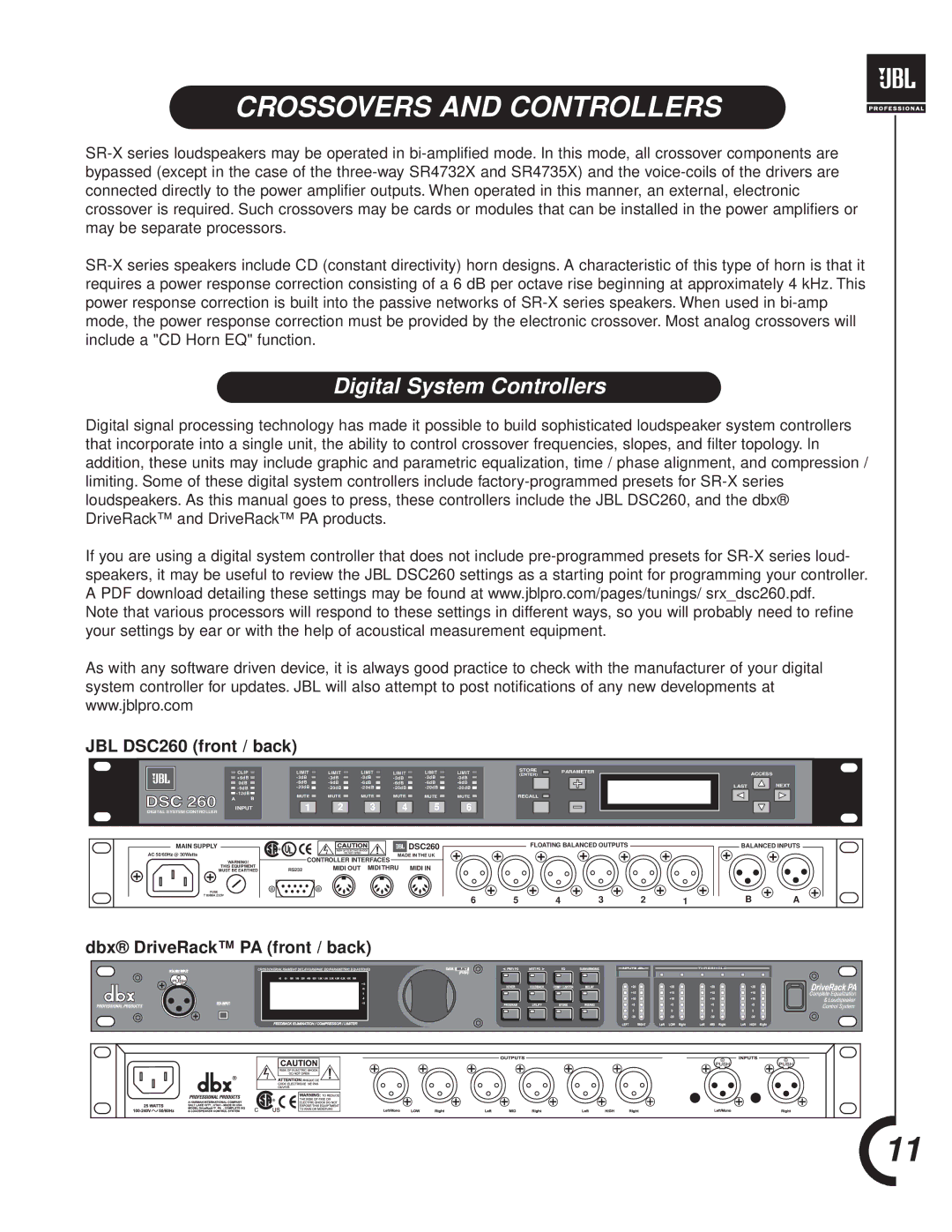
CROSSOVERS AND CONTROLLERS
Digital System Controllers
Digital signal processing technology has made it possible to build sophisticated loudspeaker system controllers that incorporate into a single unit, the ability to control crossover frequencies, slopes, and filter topology. In addition, these units may include graphic and parametric equalization, time / phase alignment, and compression / limiting. Some of these digital system controllers include
If you are using a digital system controller that does not include
Note that various processors will respond to these settings in different ways, so you will probably need to refine your settings by ear or with the help of acoustical measurement equipment.
As with any software driven device, it is always good practice to check with the manufacturer of your digital system controller for updates. JBL will also attempt to post notifications of any new developments at www.jblpro.com
JBL DSC260 (front / back)
|
| CLIP | LIMIT | LIMIT | LIMIT | LIMIT | LIMIT | LIMIT | STORE | PARAMETER | ACCESS |
|
| (ENTER) |
| ||||||||
|
| +6dB |
|
|
| ||||||
|
| 0dB |
| LAST | NEXT | ||||||
|
|
| |||||||||
|
|
|
|
| |||||||
DSC 260 |
| MUTE | MUTE | MUTE | MUTE | MUTE | MUTE | RECALL |
|
| |
A | B |
|
| ||||||||
| 2 | 3 | 4 | 5 | 6 |
|
|
| |||
| INPUT | 1 |
|
|
| ||||||
DIGITAL SYSTEM CONTROLLER |
|
|
|
|
MAIN SUPPLY
AC 50/60Hz @ 30Watts
WARNING!
THIS EQUIPMENT
MUST BE EARTHED
FUSE
T160MA 23DV
 DSC260
DSC260
MADE IN THE UK
CONTROLLER INTERFACES
RS232 | MIDI OUT MIDI THRU MIDI IN |
|
|
|
|
FLOATING BALANCED OUTPUTS
6 | 5 | 4 | 3 | 2 | 1 |
BALANCED INPUTS
BA
dbx® DriveRack™ PA (front / back)
CROSSOVER/ALIGNMENT DELAY/GRAPHIC EQ/PARAMETRIC EQ/AUTO/EQ
11
